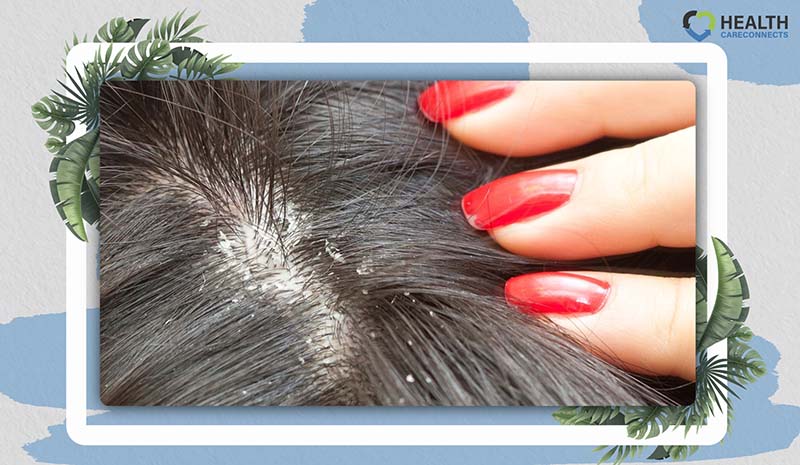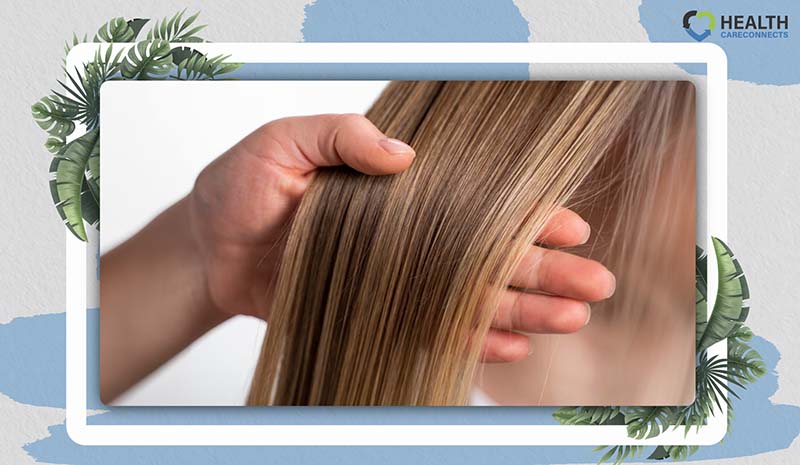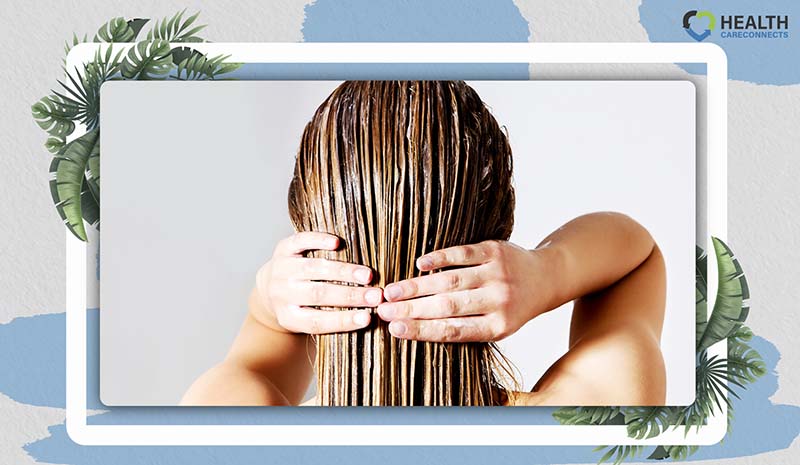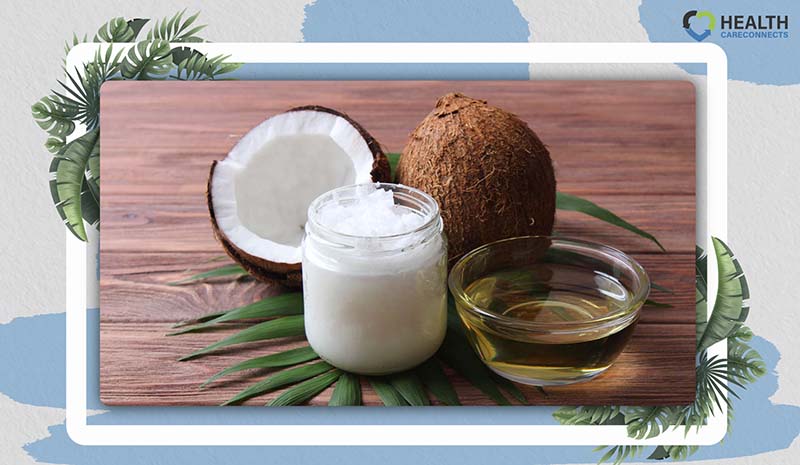Sunflower oil is a common item in many kitchen pantries, but its benefits extend beyond cooking.
Limited research suggests that sunflower oil may promote a healthy mane and encourage hair growth. Oils like argan, coconut, and jojoba are known for nourishing the scalp, creating a better environment for hair growth. But Is Sunflower Oil Good for Hair?
This article explores whether sunflower oil can benefit your hair, why it’s good for your hair, and how to use it. Let’s dive into the benefits of sunflower oil and explore alternative ways to stimulate hair growth.
Is Sunflower Oil Good for Your Hair?
Sunflower oil is indeed beneficial for hair health. It offers various advantages such as softening frizzy, curly, or dry hair, nourishing dry hair, soothing the scalp, limiting dandruff, stimulating hair growth, and bringing shine and softness to the hair.
Sunflower oil is rich in essential fatty acids, vitamin E, and antioxidants, making it a valuable ingredient for hair care products and treatments.
It can be used in different ways, including as a scalp treatment, hair mask, frizz control, and conditioner, to improve hair texture, hydration, and overall health.

Benefits of Sunflower Oil for Hair nd Scalp
May Help with Flaky Scalp
Sunflower oil is packed with anti-inflammatory properties that fight dandruff-causing bacteria and product build-up, which can lead to a dry or itchy scalp.
It also reduces the occurrence of thinning hair, early hair loss, male and female pattern baldness, and alopecia. If you’re interested in hiding thinning hair, sunflower oil can help.

Acts as an Emollient
Due to its high fatty acid concentration, sunflower oil provides excellent emollient benefits. Emollients create a protective barrier that moisturizes, softens, and smooths the hair.
Its light texture allows sunflower oil to easily penetrate the hair shaft, locking in hydration and combating dry hair and damage.
Eliminates Frizzy Hair
The fatty acids in sunflower oil make it deeply nourishing and perfect for taming unruly frizz. The oil forms a protective film around the hair cuticle, eliminating frizzy hair.
Since sunflower oil is lightweight, all hair types can use it to fight frizz without becoming too greasy or weighing your strands down.
Enhances Softness and Shine
Heat styling, color processing, and poor hair health habits can lead to damage to your hair shafts. Sunflower oil helps combat these damaging effects. One study showed that sunflower oil helps prevent hair damage and split ends.
If you’re seeking softer, shinier strands or dealing with hair breakage, sunflower oil can be highly effective.
Stimulates Hair Growth
Sunflower oil is rich in Vitamin E, which is essential for healthy hair growth, and Oleic acid, also crucial for hair growth.
This makes sunflower oil a powerful ingredient for stimulating new strand growth.

Potential Effects of Sunflower Oil on Hair and Scalp
Sunflower oil is generally considered safe for use. However, if you’re allergic to sunflower seeds, you should avoid using the oil.
Greasy Hair
If you use too much sunflower oil or don’t rinse thoroughly, your hair may look greasy. This just means it needs to be rinsed again. Thorough rinsing with warm water helps remove the remaining oils.
Heat Styling Precaution
Avoid heat styling your hair after applying a lot of oil, as it can heat up and potentially burn or damage the hair shaft.
First-Time Use
If it’s your first time using the oil, it’s always a good idea to test a small amount on your skin before putting it all over your scalp.
Patch Test Steps
- Apply a drop of sunflower oil to a small patch of skin on your arm.
- Wait 24 hours.
- Check your skin for redness, irritation, swelling, or itching. If your skin doesn’t show any of these signs, it’s probably safe to use sunflower oil.

Using Sunflower Oil for Hair Care
There are several ways to use sunflower oil for hair, depending on your needs. If you have other oils at home, you can mix them together for a luxurious treatment. Many store-bought products, including shampoos, conditioners, leave-in conditioning sprays, and masks, also contain sunflower oil.
People use this oil for overall hair health, as a deep conditioning mask, or to smooth frizz and add shine. Here are four ways to use sunflower oil at home:
| Method | Directions |
| Scalp Treatment | Take a small dollop of sunflower oil and massage it directly into your scalp (you can do this on wet or dry hair). Comb it through the hair from root to end. Wrap your hair in a warm towel and leave it on for at least 30 minutes, then shampoo and condition as normal. |
| Hair Mask | Make a DIY hair mask using 1/2 avocado or banana (or both), honey, coconut or olive oil, and sunflower oil. |
| Frizz Control | Apply a pea-sized amount of sunflower oil in your palms, rub your hands together, and smooth the oil anywhere you see frizz. |
| Conditioner | For a richer conditioner, add a dime-sized amount of sunflower oil to your existing conditioner. Apply and rinse as normal. If your hair still feels oily, you may need to double rinse. |
Notes:
- For optimal results, use these treatments consistently as part of your hair care routine.
- Mixing sunflower oil with other beneficial oils like argan or jojoba can enhance its effects.
- Always start with a small amount to avoid greasiness and adjust based on your hair’s needs.
Comparison Between Sunflower Oil and Coconut Oil for Hair
Both coconut oil and sunflower oil offer unique benefits for hair care. Here’s a comparison to help you decide which might be better for your specific hair needs and preferences:
Coconut Oil
- Deep Moisturizing: Coconut oil is renowned for its deep moisturizing properties. It penetrates the hair shaft, providing intense hydration, making it ideal for dry and damaged hair.
- Frizz Control: Its thick consistency helps tame frizz and smoothens hair.
- Protein Retention: Coconut oil helps reduce protein loss from hair, making it stronger and less prone to breakage.
- Best Use: Ideal for deep conditioning treatments, hair masks, and reducing split ends.
Sunflower Oil
- Lightweight: Sunflower oil is lighter than coconut oil, making it suitable for all hair types, including fine and thin hair.
- Scalp Health: It is packed with anti-inflammatory properties and essential fatty acids that promote scalp health, reduce dandruff, and soothe irritation.
- Shine and Softness: Sunflower oil adds shine and softness to the hair without weighing it down.
- Vitamins and Antioxidants: Rich in vitamin E and antioxidants, sunflower oil supports overall hair health and stimulates growth.
- Best Use: Perfect for scalp treatments, frizz control, and adding shine.

Choosing the Right Oil:
- If your hair is dry, damaged, or frizzy, and you need deep moisture and repair, coconut oil might be your best option.
- If you have scalp issues, need a lighter oil for daily use, or want to enhance shine and softness without heaviness, sunflower oil is a great choice.
Can I Use Sunflower Oil on My Hair Every Day?
Using sunflower oil on your hair every day depends on your hair type and care habits. Here are some guidelines to help you decide:
Hair Type Considerations
- Short and Thin Hair: Daily applications may make your hair look greasy or weighed down. It’s best to use sunflower oil sparingly.
- Thick, Curly Hair: Hair that craves moisture might benefit from a daily dose of sunflower oil. This hair type can handle more frequent applications without looking greasy.
General Tips
- Experiment with Routine: It’s best to play around with your hair care routine to see what works best for your specific hair type.
- Start Small: Sunflower oil is odorless and lightweight but apply it in small amounts to avoid over-oiling your hair.
- Adjust as Needed: Gradually increase the amount as needed but be cautious not to apply too much at once.
Conclusion
In summary, the answer to “Is Sunflower Oil Good for Hair?” is a resounding yes. Sunflower oil offers numerous benefits for hair health, including moisturizing dry strands, reducing frizz, and promoting scalp health.
Its rich content of essential fatty acids, vitamin E, and antioxidants makes it an excellent choice for those looking to improve the texture and appearance of their hair. Whether used alone or combined with other natural oils, sunflower oil is a valuable addition to any hair care regimen.
For those seeking more information and honest product reviews, I recommend visiting HealthCareConnect.

Dr. Joyce Slater: Your Guide to Informed Health Choices
Dr. Joyce Slater shines as a distinguished expert in the field of nutrition and public health. Contributing her vast expertise to HealthConnectbc, she embodies a deep-seated passion for enhancing public well-being. As a respected figure in her field. Dr. Slater’s academic journey and professional achievements are nothing short of inspirational.
Holding a significant position as a researcher and educator, Dr. Slater has delved deeply into the intricacies of food literacy and nutritional science. Her work, prominently featured in numerous esteemed scientific publications, underscores her dedication to expanding our understanding of food’s role in health and society.
At the heart of Dr. Slater’s professional ethos is a profound desire to positively impact individual lives through education and research. She often says, “Empowering people with the knowledge to make healthier choices is the most rewarding aspect of my work.” This principle is the cornerstone of her involvement with HealthConnectbc, where she strives to provide reliable and practical health advice.
Dr. Slater’s contributions to HealthConnectbc are multifaceted: academically, she offers insights into the complex world of nutrition and health, enhancing both public understanding and professional practices. Additionally, she is instrumental in guiding and inspiring the next generation of health professionals, thus fostering future excellence in the field.
Juggling rigorous research with her educational duties, Dr. Slater demonstrates an unwavering commitment to her profession. Her approachable nature and genuine concern transcend the confines of academia, touching the lives of everyone she interacts with. Dr. Slater looks forward to continuing her journey of discovery and education, dedicated to the ongoing improvement of public health and nutrition.
At HealthConnectbc, Dr. J. Slater is not just a contributor; she is a guiding light, dedicated to enlightening and motivating individuals towards a healthier and more informed lifestyle.
PUBLISHED ARTICLES
- Food literacy competencies: A conceptual framework for youth transitioning to adulthood (2018)
- Self-perceived eating habits and food skills of Canadians (2016)
- Challenges to acquiring and utilizing food literacy: Perceptions of young Canadian adults (2016)
- Socio-demographic and geographic analysis of overweight and obesity in Canadian adults (2009)
- Sustainable well-being: Concepts, issues, and educational practices (2014)

